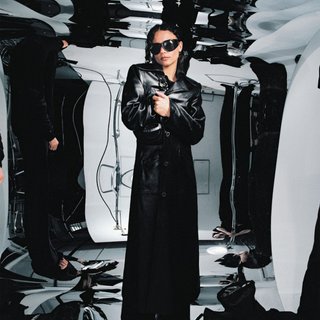Much has been made of the revival of 90s UK dance music and 2000s RnB within modern pop music, occasionally veering into cheap nostalgia or bandwagoning of 20 year cycle trends.
What Erika de Casier understands in her own exploration of this sound is the high level of detail and fidelity consistent across music from the turn of the century; the advent of the digital world bringing a thrilling new sandbox for producers to play in.
Still, like her previous two records, is a frissionary experience, bursting with creativity but restrained and deliberate in execution. It almost feels a disservice to not listen on the best speakers or headphones possible, with each piano chord, guitar line or punctuating synth placed meticulously in exactly the right place.
Breakbeats are used tastefully, subtly apostrophising a kick drum or languidly keeping time. When breaking out into more up-tempo drum and bass, de Casier doesn’t hold back: the break on Lucky churning so rapidly it sounds like it might implode in on itself. No one does percussion like her. It’s the smallest moments – the subtle twist of a hand shaker, a cascade of twinkling bells, or the rattle of an empty drinking glass.
There’s an overarching coolness to de Casier’s music, helped foremost by her vocals: hushed, but never unconfident, inviting you to listen deeper. Her songwriting is as delicately constructed as her production, a skill that led her to co-write most of New Jean’s debut EP in 2023.
On the first half of Still, de Casier’s usual rainy RnB develops a heavier humidity. She has always borrowed creatively from hip hop, often using harpsichord sounds reminiscent of G- funk; similarly, ‘Test It’s synth line sounds like it could’ve been cooked up on a Minimoog in a 90s LA studio. Other tracks lean towards the low-end drive of southern hip hop: ‘ice’, with guest verses from Tampa rap duo They Hate Change, could easily have been a bonus track from Outkast’s Stankonia.
As much as Erika de Casier draws on a Y2K-esque sense of digital freedom, her music is simultaneously also a portrait of the anxieties of living in the new millennium. Each quivering string flourish underscores a sense of dramatic fatalism, particularly across Still’s second half, as de Casier navigates a haze of complicated relationships or just tries to find enough time to unwind and do laundry.
As pop continues to borrow from genres past, a new appreciation has arisen for the performers, songwriters and producers and of this era, with respect earnt for their craft beyond just commercial success. Still proves that Erika de Casier belongs in this league, a force in all these aspects and one of modern music’s great creators.
Words by Lindsay Riley
